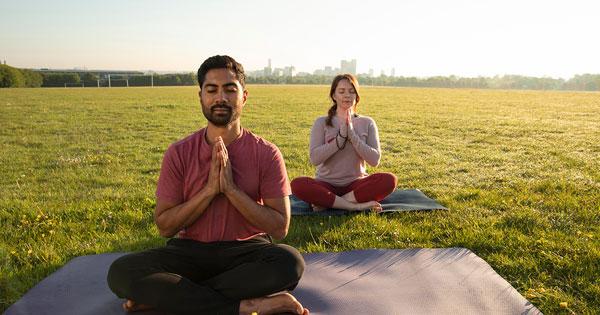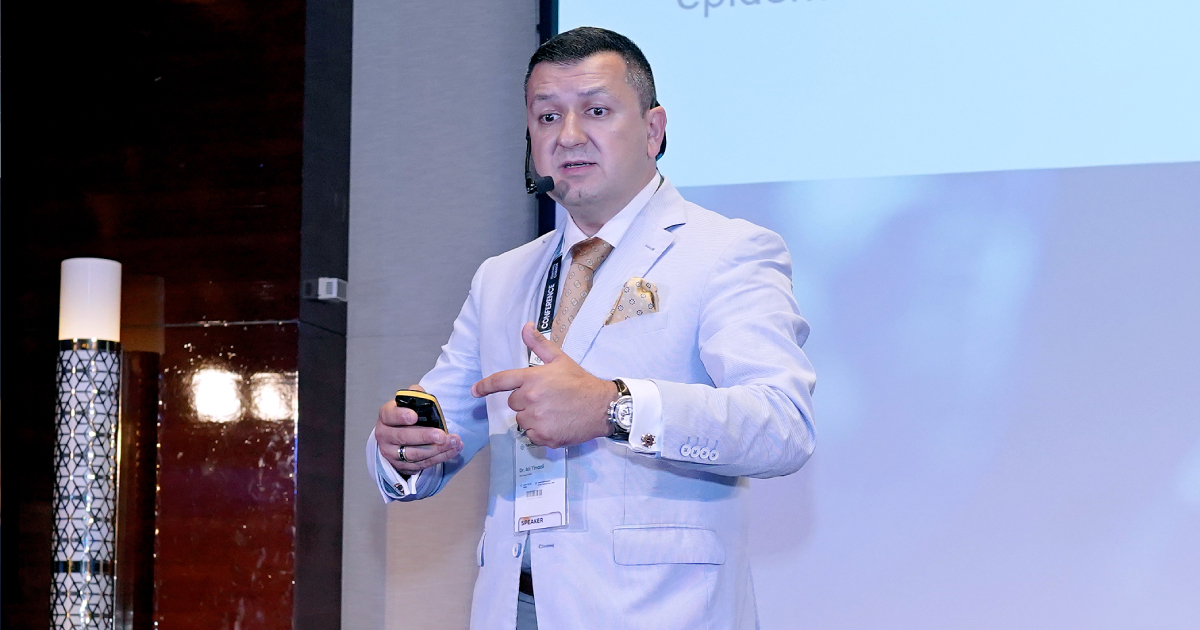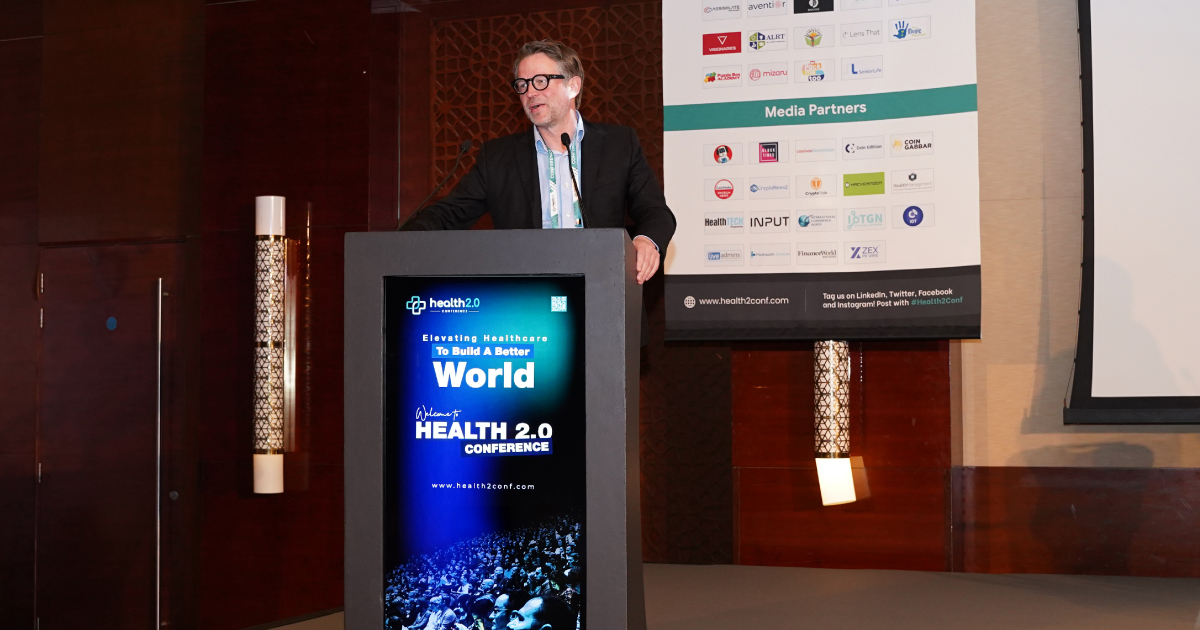In today's fast-paced and hectic world, stress has become an all-too-common companion for many. Stress lurks around every corner, whether it's due to work pressures, personal responsibilities, or the constant bombardment of information. However, there is a powerful tool that can help us navigate this chaotic landscape and find peace within ourselves: mindfulness. In this blog, we will explore the profound impact of mindfulness on stress reduction, as shared by the experts who will be participating in the upcoming healthcare conferences in 2024, notably the Health 2.0 Conference. We will explore the wisdom and insights they bring, highlighting how mindfulness can transform our lives for the better, offering us a path to greater mental well-being and resilience in the face of the health events that lie ahead.
Understanding Mindfulness
Mindfulness is a transformative practice that entails immersing ourselves completely in the present moment, free from judgment or distractions. It is the skill of attentively observing our thoughts, emotions, and bodily sensations with openness and curiosity. Through this deliberate engagement, we unlock the potential to cultivate a profound connection with both our inner selves and the external world, allowing for a richer understanding of our own being and the intricate tapestry of life that surrounds us.
How Mindfulness Works?
According to the experts of the upcoming health events 2024, mindfulness works by cultivating awareness and acceptance. It permits us to observe our thoughts and feelings without trying to change them. This non-judgmental awareness creates a mental space that can help us respond to stressors more skillfully.
Mindfulness Meditation
- Meditation stands out as a widely embraced avenue for engaging in mindfulness practices.
- During meditation, individuals focus their attention on their breath, bodily sensations, or a specific object.
- This practice helps the mind stay grounded in the present moment, diminishing the inclination to dwell on past occurrences or fret about what lies ahead in the future.
Mindful Breathing
- Infuse mindfulness into your day by merely directing your awareness towards your breath.
- Allow a few moments to inhale and exhale deeply, fully experiencing each breath.
- This can be done anywhere, making it an easily accessible stress reduction technique.
The Science Behind Mindfulness
Numerous studies have shown that mindfulness can greatly impact our mental and physical well-being. Let’s have a look at some of the scientific findings shared by the experts:
- Stress Reduction
- Mindfulness reduces the production of stress hormones like cortisol.
- It decreases the activity of the amygdala, the brain's "fight or flight" center.
- This leads to a calmer and more composed response to stressors.
- Improved Emotional Regulation
- Mindfulness enhances the prefrontal cortex's ability to regulate emotions.
- It helps individuals respond to challenging emotions with greater equanimity.
- This leads to better emotional resilience.
- Enhanced Focus And Concentration
- Mindfulness improves attention and concentration.
- It expands activity in the anterior cingulate cortex, associated with sustained attention.
- It can boost productivity and reduce the feeling of being overwhelmed.
Practical Applications Of Mindfulness
Now that we understand how mindfulness works and its scientific basis, let's explore how it can be applied in our daily lives to reduce stress and enhance overall well-being.
- Mindful Eating
- When eating, pay attention to the flavors, textures, and sensations of each bite.
- Avoid distractions like screens or multitasking.
- This leads to healthier eating habits and reduces emotional eating.
- Mindful Walking
- During a walk, focus on the sensation of your feet hitting the ground.
- Keep an eye on the sights, sounds, and smells around you.
- Mindful walking can turn a routine activity into a peaceful experience.
- Mindful Breathing Breaks
- Always take short breaks throughout the day to practice mindful breathing.
- This helps you stay centered and reduce stress, especially in hectic work environments.
- Mindfulness In Relationships
- Practice mindful listening when communicating with others.
- Be fully present and avoid distractions when engaging in conversations.
- This builts a better understanding and empathy in relationships.
Benefits Of Consistent Mindfulness Practice
Consistency is the key when it comes to mindfulness practice. The steady commitment to this practice paves the way for transformative outcomes. As we look ahead to the upcoming health events in 2024, prominent thought leaders in the field have emphasized the remarkable benefits that can be realized through regular engagement with mindfulness. Let's delve into some of these profound advantages:
- Stress Reduction
Consistent mindfulness practice rewires the brain to handle stress more effectively. Over time, you become less reactive to stressors and more resilient.
- Improved Mental Health
Mindfulness is associated with reduced symptoms of anxiety and depression. It provides individuals with tools to manage and cope with difficult emotions.
- Enhanced Well-Being
Regular mindfulness practice promotes a sense of inner peace and contentment. It allows individuals to savor the present moment and find joy in simple experiences.
- Better Physical Health
Mindfulness helps lower blood pressure and improve sleep quality. It increases or boosts the immune system and supports overall health.
Overcoming Common Obstacles
Well, mindfulness can be a powerful tool for stress reduction; it's important to acknowledge and address common obstacles shared by the experts of the healthcare conferences, notably the Health 2.0 Conference 2024, that may arise during practice:
- Restless Mind
- It's normal for the mind to wander during mindfulness practice.
- Gently bring your focus back to the present without self-criticism.
- Lack Of Time
- Many people feel they don't have time for mindfulness.
- Start with short sessions and gradually increase the duration as you become more comfortable.
- Impatience
- Some individuals expect immediate results from mindfulness.
- Understand that the benefits often accumulate over time with consistent practice.
Final Words
Mindfulness offers a powerful antidote in a world filled with constant stressors and distractions. According to the experts of the upcoming Health 2.0 Conference, we can reduce stress and improve our overall well-being by cultivating awareness, acceptance, and presence. The scientific evidence supporting mindfulness is compelling, and its practical applications are vast. Through consistent practice, we can harness the power of mindfulness to find calm amidst the chaos of our hectic lives. So, why not take a moment right now to pause, take a deep breath, and begin your journey toward a more mindful and stress-free existence?














